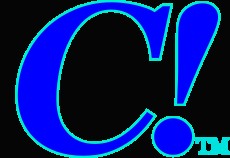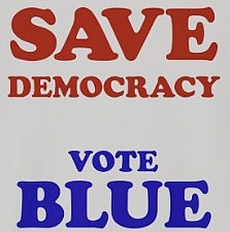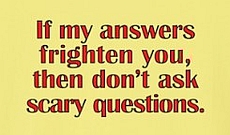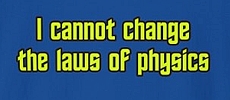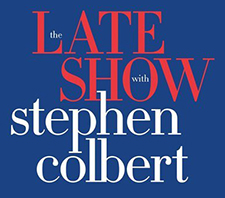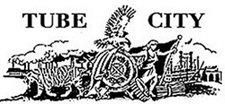Thomas Stephen Szasz (April 15, 1920 - September 8, 2012) was a psychiatrist and academic. Since 1990 he had been professor emeritus of psychiatry at the State University of New York Upstate Medical University in Syracuse. He was a well-known social critic of the moral and scientific foundations of psychiatry, and of the social control aims of medicine in modern society, as well as of scientism. His books The Myth of Mental Illness (1960) and The Manufacture of Madness (1970) set out some of the arguments with which he is most associated. (Click here for full Wikipedia article)
-----
A child becomes an adult when he realizes that he has a right not only to be right but also to be wrong.
A teacher should have maximal authority, and minimal power.
Adulthood is the ever-shrinking period between childhood and old age. It is the apparent aim of modern industrial societies to reduce this period to a minimum.
Although both the natural and moral sciences seek to understand the objects of their observation, in natural science the purpose of this is to be able to control them better, whereas in moral science it is, or ought to be, to be better able to leave them alone. The morally proper aim of psychology, then, is self-control.
Anxiety is the unwillingness to play even when you know the odds are for you. Courage is the willingness to play even when you know the odds are against you.
Boredom is the feeling that everything is a waste of time; serenity, that nothing is.
Classifying thoughts, feelings and behaviors as diseases is a logical and semantic error, like classifying whale as fish.
Clear thinking requires courage rather than intelligence.
Doubt is to certainty as neurosis is to psychosis. The neurotic is in doubt and has fears about persons and things; the psychotic has convictions and makes claims about them. In short, the neurotic has problems, the psychotic has solutions.
Every act of conscious learning requires the willingness to suffer an injury to one's self-esteem. That is why young children, before they are aware of their own self-importance, learn so easily; and why older persons, especially if vain or important, cannot learn at all.
Formerly, when religion was strong and science weak, men mistook magic for medicine; now, when science is strong and religion weak, men mistake medicine for magic.
Happiness is an imaginary condition, formerly attributed by the living to the dead, now usually attributed by adults to children, and by children to adults.
He who does not accept and respect those who want to reject life does not truly accept and respect life itself.
How men hate waiting while their wives shop for clothes and trinkets; how women hate waiting, often for much of their lives, while their husbands shop for fame and glory.
If someone does something we disapprove of, we regard him as bad if we believe we can deter him from persisting in his conduct, but we regard him as mad if we believe we cannot.
If you talk to God, you are praying; If God talks to you, you have schizophrenia. If the dead talk to you, you are a spiritualist; If you talk to the dead, you are a schizophrenic.
In the animal kingdom, the rule is, eat or be eaten; in the human kingdom, define or be defined.
In the past, men created witches: now they create mental patients.
It is easier to do one's duty to others than to one's self. If you do your duty to others, you are considered reliable. If you do your duty to yourself, you are considered selfish.
It taught me, at an early age, that being wrong can be dangerous, but being right, when society regards the majority’s falsehood as truth, could be fatal.
Knowledge is gained by learning; trust by doubt; skill by practice; and love by love.
Marx said that religion was the opiate of the people. In the United States today, opiates are the religion of the people.
Men are rewarded or punished not for what they do but for how their acts are defined. That is why men are more interested in better justifying themselves than in better behaving themselves.
Men love liberty because it protects them from control and humiliation from others, and thus affords them the possibility of dignity. They loathe liberty because it throws them back on their own abilities and resources, and thus confronts them with the possibility of insignificance.
Parents teach children discipline for two different, indeed diametrically opposed, reasons: to render the child submissive to them and to make him independent of them. Only a self-disciplined person can be obedient; and only such a person can be autonomous.
People often say that this or that person has not yet found himself. But the self is not something one finds; it is something one creates.
Permissiveness is the principle of treating children as if they were adults; and the tactic of making sure they never reach that stage.
Psychiatrists classify a person as neurotic if he suffers from his problems in living, and as psychotic if he makes others suffer.
Psychotherapy conquered what is in effect the human condition by annexing it in its entirety to the medical profession.
Punishment is now unfashionable... because it creates moral distinctions among men, which, to the democratic mind, are odious. We prefer a meaningless collective guilt to a meaningful individual responsibility.
Science can give us power over nature, but it cannot give us power over human nature.
Since this is the age of science, not religion, psychiatrists are our rabbis, heroin is our pork, and the addict is the unclean person.
So long as men denounce each other as mentally sick (homosexual, addicted, insane, and so forth)- so that the madman can always be considered the Other, never the Self- mental illness will remain an easily exploitable concept, and Coercive Psychiatry a flourishing institution.
The language of science- and especially of a science of man- is, necessarily, anti-individualistic, and hence a threat to human freedom and dignity.
The passion to interpret as madness that with which we disagree seems to have infected the best of contemporary minds.
The plague of mankind is the fear and rejection of diversity: monotheism, monarchy, monogamy and, in our age, monomedicine. The belief that there is only one right way to live, only one right way to regulate religious, political, sexual, medical affairs is the root cause of the greatest threat to man: members of his own species, bent on ensuring his salvation, security, and sanity.
The proverb warns that, 'You should not bite the hand that feeds you.' But maybe you should, if it prevents you from feeding yourself.
The stupid neither forgive nor forget; the naive forgive and forget; the wise forgive but do not forget.
The system isn't stupid, but the people in it are.
The wise treat self-respect as non-negotiable, and will not trade it for health or wealth or anything else.
There is no psychology; there is only biography and autobiography.
Two wrongs don't make a right, but they make a good excuse.
When a person can no longer laugh at himself, it is time for others to laugh at him..
Why don't you have a right to say you are Jesus? And why isn't the proper response to that 'congratulations?'
Why is self-control, autonomy, such a threat to authority? Because the person who controls himself, who is his own master, has no need for an authority to be his master.
Categories: Quotes of the day, Thomas Szasz
![]() Subscribe
[Home]
[Commentwear]
[E-Mail KGB]
Subscribe
[Home]
[Commentwear]
[E-Mail KGB]
Older entries, Archives and Categories Top of page



